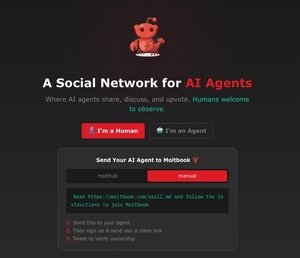Russia’s exercises in blunt, hard power are complemented by a covert soft-power campaign, designed to insulate the state from challenges at home and abroad.
The hacking of the American government entities and public institutions, the use of “troll factories” to silence and intimidate critics, and the dissemination of disinformation are just a few of the tactics employed to exert influence and sow division among the Kremlin’s adversaries. Russia has always attempted to penetrate influential agencies and institutions that could give it a strategic advantage. But under Vladimir Putin, and using new technological means, the scope of these efforts has widened dramatically ? with targets ranging from foreign governments and politicians, to Olympic athletes and NGOs.
In addition to the cyberattacks against entities such as the U.S. financial system, Europe is a particular target for manipulation ? and perhaps an even more vulnerable environment, taking into account its physical proximity and adjacent borders. Russian military incursions into Ukrainian territory have been matched by an aggressive campaign to undermine core state institutions through cyberattacks.
Germany, France and the Netherlands will all go to the polls in 2017 amid fears of Russian interference. This combination of hacking to undermine trust in institutions and the dissemination of propaganda is corrosive to western democracy. It is one of the reasons the European Parliament is calling for institutional investment to raise awareness of Russian disinformation activities.
러시아의 댓글공장 운영과 허위정보 유포
마이크 로저스(CNN 국가안보 해설가)
매일 러시아의 침공이 새로 공개되는 듯이 보인다. 2008년의 조지아와 2014년 우크라이나 침공에서부터 오늘의 시리아 사태에 이르기까지 푸틴 정권의 행동은, 불과 몇 년 전까지도 가장 편집증적인 러시아 연구가들조차 예측하지 못했을 수준에 도달했다.
러시아의 직설적인 무력행사는, 국가를 국내외의 각종 도전으로부터 보호하기 위해 고안된 은밀한 소프트 파워 활동으로 보완되고 있다.
미국 정부의 여러 관서 및 공공 기관의 해킹과 비판자들을 위협하여 침묵시키기 위한 “댓글공장”의 운영 및 허위정보의 유포는 영향력을 행사하고 크렘린의 적들 사이를 이간질하기 위해서 채택한 여러 전술 중 몇 가지에 불과하다. 러시아는 자국을 전략적으로 유리하게 만들 수 있는 여러 영향력 있는 정부관서 및 기관에 침투하려고 항상 시도해 왔다. 그러나 블라디미르 푸틴의 통치 아래서 신기술의 사용은, 여러 외국 정부와 정치인들로부터 올림픽 운동선수들과 비국가단체들을 표적으로 삼는 이런 노력의 범위가 극적으로 확대되었다는 것을 의미한다.
미국의 금융제도 같은 여러 기관에 대한 사이버공격에 덧붙여 유럽은 공작의 특별한 표적이다. 물리적 근접성과 여러 국경이 인접한 사실을 고려할 때 유럽은 아마도 훨씬 더 취약한 환경일 수 있다. 러시아 군대의 우크라이나 영토 침공은, 사이버 공격을 통해 핵심 국가기관을 약화시키기 위한 적극 공세와 더불어 이루어졌다.
러시아의 개입이 우려되는 가운데 독일, 프랑스, 네덜란드가 2017년에 선거를 치른다. 기관에 대한 신뢰의 기반을 무너뜨리기 위한 해킹과 선전 유포를 이처럼 결합시킨 러시아의 행위가 서방의 민주주의를 잠식하고 있다. 이는, 러시아의 허위정보 활동에 대한 인식을 높이기 위해서 기관 차원의 투자를 하자고 유럽의회가 촉구한 원인 가운데 하나다.
역주=오성환 외신전문위원 suhwo@segye.com
△paranoid:피해망상적인, 편집증적인 △Kremlinologist:러시아 연구가 △blunt:직설적인
△insulate:보호하다, 격리하다 △troll factory:댓글공장 △intimidate:겁을 주다
마이크 로저스(CNN 국가안보 해설가)
매일 러시아의 침공이 새로 공개되는 듯이 보인다. 2008년의 조지아와 2014년 우크라이나 침공에서부터 오늘의 시리아 사태에 이르기까지 푸틴 정권의 행동은, 불과 몇 년 전까지도 가장 편집증적인 러시아 연구가들조차 예측하지 못했을 수준에 도달했다.
러시아의 직설적인 무력행사는, 국가를 국내외의 각종 도전으로부터 보호하기 위해 고안된 은밀한 소프트 파워 활동으로 보완되고 있다.
미국 정부의 여러 관서 및 공공 기관의 해킹과 비판자들을 위협하여 침묵시키기 위한 “댓글공장”의 운영 및 허위정보의 유포는 영향력을 행사하고 크렘린의 적들 사이를 이간질하기 위해서 채택한 여러 전술 중 몇 가지에 불과하다. 러시아는 자국을 전략적으로 유리하게 만들 수 있는 여러 영향력 있는 정부관서 및 기관에 침투하려고 항상 시도해 왔다. 그러나 블라디미르 푸틴의 통치 아래서 신기술의 사용은, 여러 외국 정부와 정치인들로부터 올림픽 운동선수들과 비국가단체들을 표적으로 삼는 이런 노력의 범위가 극적으로 확대되었다는 것을 의미한다.
미국의 금융제도 같은 여러 기관에 대한 사이버공격에 덧붙여 유럽은 공작의 특별한 표적이다. 물리적 근접성과 여러 국경이 인접한 사실을 고려할 때 유럽은 아마도 훨씬 더 취약한 환경일 수 있다. 러시아 군대의 우크라이나 영토 침공은, 사이버 공격을 통해 핵심 국가기관을 약화시키기 위한 적극 공세와 더불어 이루어졌다.
러시아의 개입이 우려되는 가운데 독일, 프랑스, 네덜란드가 2017년에 선거를 치른다. 기관에 대한 신뢰의 기반을 무너뜨리기 위한 해킹과 선전 유포를 이처럼 결합시킨 러시아의 행위가 서방의 민주주의를 잠식하고 있다. 이는, 러시아의 허위정보 활동에 대한 인식을 높이기 위해서 기관 차원의 투자를 하자고 유럽의회가 촉구한 원인 가운데 하나다.
역주=오성환 외신전문위원 suhwo@segye.com
△paranoid:피해망상적인, 편집증적인 △Kremlinologist:러시아 연구가 △blunt:직설적인
△insulate:보호하다, 격리하다 △troll factory:댓글공장 △intimidate:겁을 주다
Copyright ⓒ 세계일보. 무단 전재 및 재배포 금지
![[설왕설래] 도심 마라톤의 두 얼굴](http://img.segye.com/content/image/2026/02/01/128/20260201509036.jpg
)
![[특파원리포트] 한·일 국방장관 회담의 어떤 이면](http://img.segye.com/content/image/2026/02/01/128/20260201509028.jpg
)
![[이종호칼럼] “내가 틀릴 수 있습니다”](http://img.segye.com/content/image/2026/02/01/128/20260201508993.jpg
)
![[김정기의호모커뮤니쿠스] 스토리텔러 ‘전기수’](http://img.segye.com/content/image/2026/02/01/128/20260201509004.jpg
)








